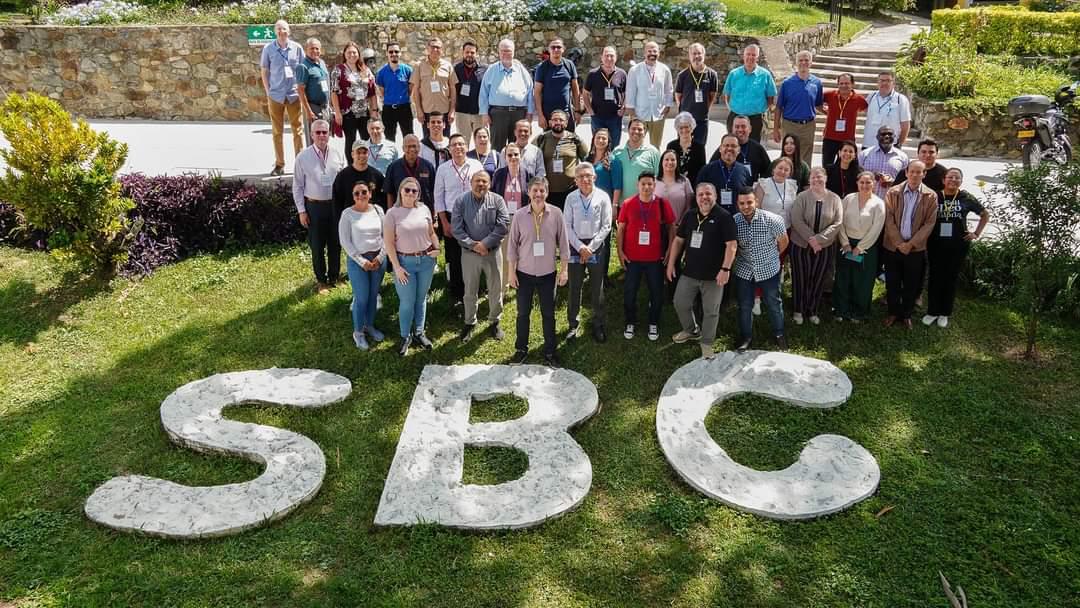In August 2024, representatives from the Strategic Alliance of Latin American Seminaries (SALAS) joined together for a face-to-face regional encounter in Medellín, Colombia. We missed our Caribbean partners (visa issues), but the other seven schools in the alliance were well represented. Leaders from four other regional seminaries (Asbury Theological Seminary partners) also joined us for the three-day event. The topic that was addressed from a variety of angles was: “What kind of church do we hope to see in Latin America in 2050, and what is the role of theological education in making that a reality?” The Medellín seminary team (FUSBC), who were amazing hosts, collected into a “book of memories” the action points that were generated by the conversations and presentations. This “book” (really an article) has been published by ATS in the most recent bilingual edition of the Asbury Journal, which is available to all via “First Fruits.”
(https://place.asburyseminary.edu/firstfruits/)
In addition to the conference itself, it was a great delight to have all the schools together for a joint celebration of two significant anniversaries: 80 years (FUSBC) and 70 years (Londrina Bible Seminary, Brazil). Both schools are leaders within the network—innovative, creative, and deeply committed to keeping alive the Wesleyan theological roots of the institutions’ founders.
The SALAS schools continue to meet virtually every other month. In April, Rebecca Pazmiño (Latin America regional director) facilitated a conversation about how “digital fasting” might impact the life and ministry of seminaries. This was highly pertinent to the action points from Medellín, since the holistic spiritual development of students was a key conversation during our days together. During the second half of the April meeting, we dug into how the various schools have been implementing the “action points” from the Medellín gathering. Representatives from FUSBC, ISBL, and SEMIRED (Guayaquil, Ecuador) shared how they have done curriculum reevaluation using those action points as a fresh lens. Next month, Will Faircloth, from the Wesley Heritage Foundation, will be with us, to share on the topic “John Wesley and a Healthy, Sustainable Leadership,” which intersects with other action points from the Medellín gathering.
I am particularly impressed with the creativity of our schools. Let me share just two examples. First, SEMWESVEN (Barquisimeto, Venezuela). In the midst of desperately difficult conditions, this seminary has not only “kept the lights on and the doors open,” they have become a beacon of hope in their neighborhood and city. Because of the daily, hours-long electricity cuts, children’s education has been disrupted; kids are only receiving an average of two hours of instruction per day. A pair of dynamic women leaders at the seminary said, “This cannot be!” And out of their own scarcity, like the Philippians, they showed admirable generosity in the creation of a teaching and tutoring program on the seminary grounds, to make sure that children and youth are not losing out because of the political and economic difficulties. The children in this program will stay on track to graduate, without significant gaps in their learning.
SEMBEC (Cuenca, Ecuador) has experimented with a variety of delivery systems for their classes, and they have finally settled on a hybrid model that seems to have “clicked” with the people in their area. From an average class size of 8 post-Covid, they have grown to an average of 30. Last semester, as they reflected on our conversations in Medellín about the spiritual formation of students, they made the decision to give up one night of class per month and dedicate that time to prayer, praise, and worship. An average of 50 people attended these sessions, which usually run 2–3 hours.
Thank you for praying for our Latin American seminaries!

